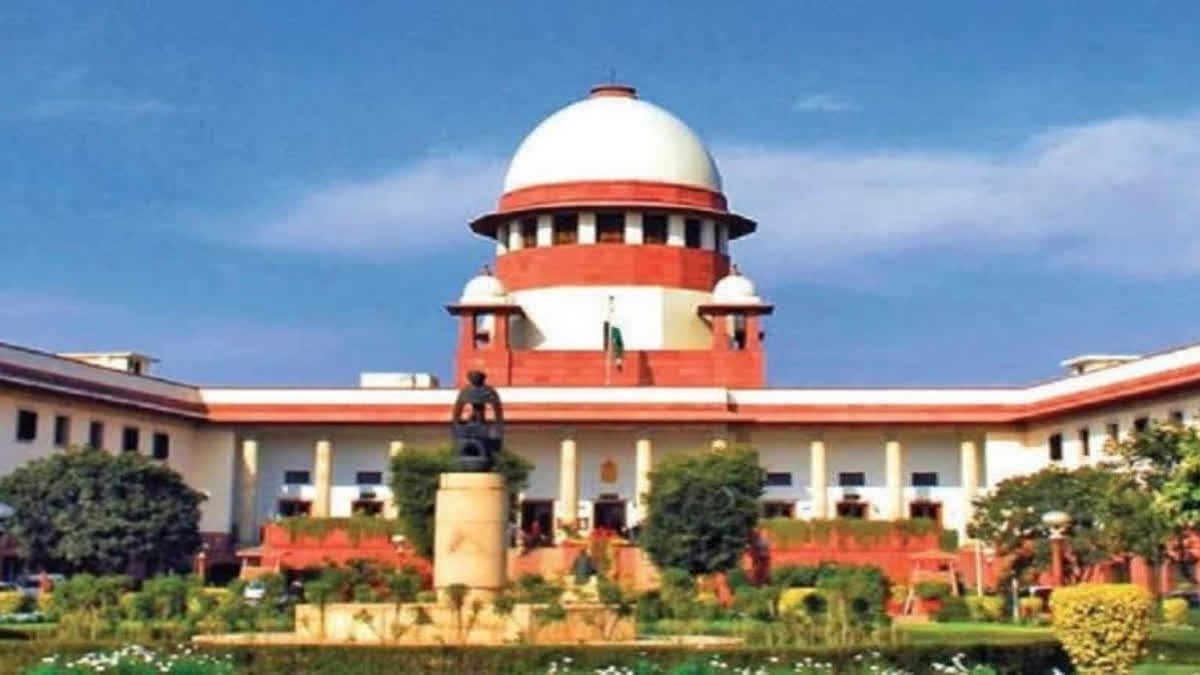New Delhi: The Supreme Court on Tuesday said Article 370 itself specifies the condition under which its abrogation can take place and Article 370 provides for a modality through which it would come to an end.
A five-judge constitution bench headed by Chief Justice of India D Y Chandrachud and comprising justices S K Kaul, Sanjiv Khanna, B R Gavai, and Surya Kant, is hearing a batch of petitions challenging the abrogation of Article 370, which bestowed special status on erstwhile state of Jammu and Kashmir.
The Chief Justice observed that once we accept the fact that Article 370 is subject to amending power under Article 368 of the Constitution, then equally Article 370 provides for a modality through which Article 370 would come to an end.
Senior advocate Kapil Sibal said "let us see Article 370 and what modality is? That modality cannot be to convert a legislative assembly into a constituent assembly through an executive act under Article 367 (1)….we have to find the modality within the Constitution and not outside it. If your lordships put to me something more that has to be done under the Constitution of India, I would like to know what is that something more?"
The Chief Justice told Sibal Article 370(3) itself specifies the condition under which the abrogation can take place. Sibal replied that it must be on the recommendation of the constituent assembly and the residuary power vests in the state, and if 370(3) provides a way but it is on the recommendation of the constituent assembly.
The Chief Justice said therefore according to you the power is completely lost once the Jammu and Kashmir constituent assembly comes to an end. Sibal said let us not go that far and let us assume some power is available, under Article 368, it is hypothetical and we are not concerned with it.
Justice Khanna said Article 368 has power to amend the Constitution, which is certainly there, when we look at 370 (3), the issue would be whether 368 power is not available to amend the Constitution. Sibal said your lordships are not concerned with it in this matter. The Chief Justice said, “no, it is very crucial because once we accept the fact that Parliament as a sovereign law-making body has the power to amend everything including Article 370, then any amendment of 370 may subject to criticism on the ground of morality but not power…maybe it is a political argument but it is not an argument of constitutional power”.
The Chief Justice said the exercise of power under Article 370 (3), can it not be criticized as a political criticism, and is it an argument of the absence of power? Sibal said where is the power that you can do it under Article 368? Justice Khanna said Article 368 has the power to amend the Constitution.
Sibal stressed, “are we concerned with that here, I am sorry my lords you require two-third…” The Chief Justice there is power within Article 370 to abrogate it. Pointing at a clause, the bench said it gives power to the President to abrogate Article 370. Sibal said it only comes on the recommendation of the constituent assembly that the President will exercise the power and not the other way around.
During the post lunch hearing, Sibal emphasized that a Union Territory can be carved out of two or more states coming together but two union territories cannot be created in a state. Sibal, referring to Article 3 of the Constitution, said that Jammu and Kashmir cannot be split into union territories using this provision. Sibal stressed that the Constitution’s text and the fundamentals of a constitutional democracy do not permit it.
Sibal said the central government used its prerogative power to completely erase the opinion of J&K people. He said, “when you want to sever such a special relationship with Jammu and Kashmir, you have to ultimately seek the opinion of the people….what happened in Brexit….no constitutional provision for a referendum, yet they asked for public opinion?
The Chief Justice replied you cannot envisage a Brexit-type referendum and that was a political decision taken by the UK government and within our Constitution there is no question of referendum.
Sibal completed his arguments today. He represented Moha Akbar Lone. The top court will continue to hear tomorrow petitions challenging the abrogation of Article 370.



